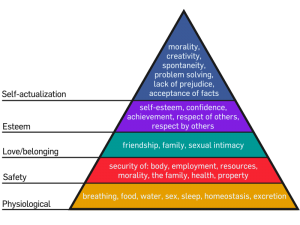 If you’re here, chances are you’re looking to quit your job to go out on your own. That’s the premise of the Quitters Checklist – how to quit your job and move to self-employment.
If you’re here, chances are you’re looking to quit your job to go out on your own. That’s the premise of the Quitters Checklist – how to quit your job and move to self-employment.
But before making any move to self-employment, you need to ask yourself – what triggered these thought and ideas in my mind? Why do I suddenly want to give up the known for the unknown? Yes, it’s cliche, but the old saying goes: the grass is always greener on the other site. Remember, something you don’t have is something you probably idealize. So, it may not line up with reality.
That’s why self-reflection and understanding on your quitting trigger points is huge.
Trigger Points for Quitting Your Job
People want to quit their jobs for a variety of reasons. Ask yourself if these reasons are really a sign you should move towards entrepreneurship, or maybe you’d be better off continuing to work. I’ve already discussed the top reasons people quit their jobs before, so this isn’t about that. These are the emotional triggers – the points that make people think they can do better themselves.
Frustration
One of the biggest trigger point for a lot of people is frustration. We’ve all been there. You’re fed up with pay. You’re fed up with your boss. You don’t like what you do. It’s tough. The bad part about frustration is that it brews. It just gets worse over time. You stagnate and get even more frustrated. You think the only way to break the cycle is to quit and go out on your own.
You could also be frustrated at yourself. Maybe you’re disappointed that you only made it so far in your career to-date? Be aware of this trigger point – it can be dangerous.
Needs
 Sometimes, a fundamental need is your trigger point. Remember Maslow’s Hierarchy of Needs? It starts at the physiological level – food, water, breathing – then moves to safety, then love, then esteem, and finally actualization. However, many life changes and circumstances can challenge the most fundamental levels of this hierarchy, and it can be a trigger point for wanting to quit your job.
Sometimes, a fundamental need is your trigger point. Remember Maslow’s Hierarchy of Needs? It starts at the physiological level – food, water, breathing – then moves to safety, then love, then esteem, and finally actualization. However, many life changes and circumstances can challenge the most fundamental levels of this hierarchy, and it can be a trigger point for wanting to quit your job.
What if your spouse lost their job? Do you need to earn more to make ends meet? These types of needs can be a trigger for more.
Sometimes, the need can be the top of the hierarchy. I break that down more below, but realize that creativity and self-actualization are also needs on a higher level.
The Industry
In other cases, the industry may not be the right fit. Maybe you were getting into something and it ended up being a totally different job. A common example is “financial analyst”. Too many companies advertise this job title for a huge variety of jobs. I’ve seen payroll processors, accountants, operations analysts, and even sales people called financial analysts.
Maybe you didn’t really know what you were getting into or were altruistic when you entered your profession. I’ve talked about my experience before in the lies that financial advisors will tell you. For a long time I wanted to be a financial analyst, but I never really realized that the majority of the job is selling, and not helping. I decided that wasn’t for me, and instead went about trying to actually help people.
Regardless, this trigger can make you want to quit your job and do something different.
Passion
Finally, there is passion. This goes hand-in-hand with Maslow’s top tier – self-actualization. Maybe you’re just not passionate about what you’re doing. I’m a big believer in only doing what you’re passionate about. The trouble is, when you’re 22 years old and just graduating college, you don’t necessarily know what that is. Heck, you may not know what you’re passionate about for years.
But passion is a huge trigger – I would say one of the biggest triggers – and is one that can lead to success if combined with the right tools.
Solutions for Common Trigger Points
The solution to hitting a quitting trigger point isn’t always quitting your job. While it may be in some scenarios, it isn’t the only option. There are actually a lot of different options in every scenario. In Derek Halpern’s latest podcast at Social Triggers, he talks to Dan Heath about making better decisions. One of the best pieces of advice that I got from the podcast was changing your perspective from an “either-or” decision to a “multiple choice” decision.
The bottom line is that when you hit a trigger point, you instinctively look for an alternative. Very few people look for multiple alternatives. You hate your boss and think your only solution is to quit. You don’t know what you didn’t get that last promotion, so you immediately start looking for another company to work for.
But in every scenario, there is an AND. Have you talked to your boss? Do you have a mentor? Can you talk to a peer you trust? Are there transfer options?
Those are just a few ways to expand the question. And it doesn’t mean that quitting isn’t your best option. I’m just saying it isn’t always your ONLY option.
Solutions for Frustration
 The best solutions for frustration come down to communication. Is it your boss? Could it be you? When was the last time you sought honest feedback about your own performance and perception in the company? Find a mentor and get some advice. If you’re already frustrated, you’re probably not in the mindset to be an entrepreneur. It’s not going to work well. You probably just need a change of scenery your company or a different company.
The best solutions for frustration come down to communication. Is it your boss? Could it be you? When was the last time you sought honest feedback about your own performance and perception in the company? Find a mentor and get some advice. If you’re already frustrated, you’re probably not in the mindset to be an entrepreneur. It’s not going to work well. You probably just need a change of scenery your company or a different company.
Solutions for Needs and Industry Triggers
If you’re dealing with an unmet need or have realized that you aren’t in the right industry, think about moonlighting. It’s the premise of my Quitters Checklist and my belief in the Slow and Steady Approach to Entrepreneurship.
If you need money or support, building a side income is a great way to meet that need. You don’t give up anything in your primary job, but you simply add to it. It results in a time commitment, which could pose other problems (especially with your family), but it can be a great way to earn extra money.
If you’re looking to get into a different industry, the same think applies. Maybe you look at freelancing in that industry, or starting a side business. A really good friend of mine is building an Etsy store that is getting to be pretty successful. During the day she is an enrollment officer at a university. However, maybe this year, she’ll be able to do her stationary business full time.
You can also look into going to seminars or trainings in the industry you want to get into.
Solutions for Passion Triggers
Passion is a tough one. I’m a big believer in starting a side business to follow your passion if your primary job just isn’t cutting it. That way, you can see if you’re really passionate about it.
Here’s how you can tell if you have a passion for something. Start something. Build it. Have fun with it. Then STOP. Take a break. If you’re on the break, and you really just want to be building and working on your project, then you know you really have a passion for it. That’s how you know passion is a trigger, and building a successful side business is a great way to leverage it.
Deciding if Entrepreneurship is for You
The trick is to decide if entrepreneurship is for you. If you start a side business, and are passionate about it, that is a start. Then, you have to make money with it.
You can do this on the side. You can do this while working.
Then, take a break from your side project to ensure that your passion is still there. If it is, try this:
Take a break from your main job – maybe a two week vacation. But don’t go anywhere. Just work on your side business.
If it’s making money and you’re happy, follow my Quitters Checklist and start working your way towards entrepreneurship. You don’t want to feel the impact of regret like these entrepreneurs.
What’s your trigger point? Why do you want to quit your job?


Frst of all have to tell you that you have a killer note on your home page. That instantly made me like the blog before even coming to down the content. Foudn you though the interesting commennt you have placed at the Think Traffic blog. One of the blogs I never missed out. Have you checked the Fizzle online learning platform by Cobert and the guys? It’s great.
This article “Trigger Points: What Makes You Want to Quit Your Job?” has a good relationship to my life and what I did when I was working in the corporate office in London. Loved reading it Robert Farrington. Keep up the good work and I will definitely want to share this with my readers at FERNANDOBIZ
Thanks – I’m glad you like the design and this post resonated with you. Thanks for stopping by!